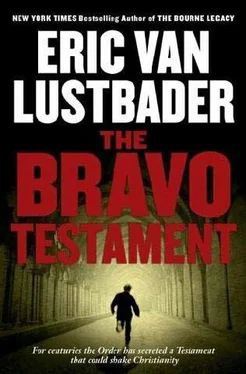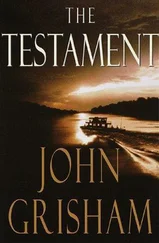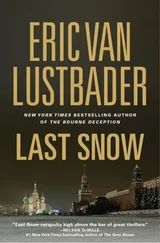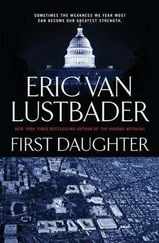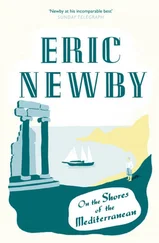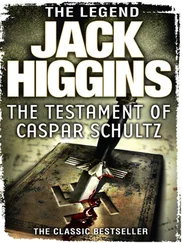"It wouldn't be for long." His father looked at him and, for the first time, revealed all the pain Steffi's suffering and death had unleashed on him. "It's only that when I pass by your room at night I want to see your head on the pillow, that's all. Just for a while, okay?"
"Sure."
Dexter stopped beside a plane tree, his hand running across the sun-splashed bark, pied as the coat of their neighbor's mutt. "Sometimes, Bravo, late at night when I walk through the house I see her, or hear her coming through the door, her voice calling to me, so warm and tender, you know, like this sunlight…"
In the twilight that lay between unconsciousness and consciousness Bravo was reluctant to let his father go. As Dexter's face threatened to dissolve in the mist, Bravo thought of the Quintessence and his heart leapt at finding it, of applying it to his father's body, of seeing him resurrected. But almost immediately, he knew it was not to be. Resurrection was not what his father would have wanted. How could he know that so absolutely? Because he knew that his father must have had these selfsame thoughts after Steffi had died. He'd had access to the cache of secrets and, therefore, the Quintessence. Why not use it to bring his beloved Steffi back to life? Because he agreed with Uncle Tony, the Quintessence was not for humans. It went against the natural laws of life; using it would upset the careful balance of nature, resulting in unknowable, and possibly disastrous, consequences. This was why the Order had so zealously guarded it for so many centuries, this was why he must not fail in the task his father had given him. He knew this in a visceral way now, a way he could not have understood before. Because even though he knew it was wrong, he could feel the powerful lure, the possibility, improbable though it might seem, of having his father resurrected, returned to life. They could complete all the hesitating conversations that, as adults, they had left dangling, they could let down their guard, produce for each other explanations for their thoughts and actions. They could at last begin to understand each other fully, and in each other's presence reach the serene state of forgiveness.
Rising at last into full consciousness, he rolled over and groaned. He felt that something basic was different and it took him a moment to realize the rocking of the water was absent, he was no longer in the motoscafo. Opening his eyes, he discovered that the hood had been removed. He was in a small, cramped room with a simple cot and bedding, on which he was lying, an unadorned scarred wooden chest atop which sat a utilitarian white porcelain pitcher and bowl. On the wall above the cot was a wooden crucifix. He was in a monastic cell.
Light streamed through a window. Though small, it was open and unbarred-odd for a prison cell, for he had to assume that he had been captured by the Knights of St. Clement. Jenny's mission had been to kill Father Mosto and then lead him to the apex of the bridge where the Knights were waiting for him. He lay for a moment more, mulling over her treachery. She had fooled him, just as she had fooled his father. He vowed that would never happen again. If he got out of here.
Painfully, he rose and approached the small window. Outside, he saw a beautiful cloister and, beyond a stone wall, rows of finely cultivated trees. As if they had been waiting for his appearance in the window, two figures came into view. They were wearing monastic robes, hooded like Capuchins, but their faces were hard-lined and decidedly grim.
"I suppose you're wondering if they're guards."
He turned to find himself facing a heavyset man with blue jowls and curious eyes. He was nearly bald, with a tuft of fine, sandy hair running around the rim of his deeply tanned pate. He, too, was clad in monastic robes.
"They are," the man continued, "but not in the manner you think. They're here to protect you."
Bravo gave a harsh laugh. "Do you mean the men who threw me over the side of the bridge and beat me senseless, or are you talking about someone else?"
"My people rather overzealously defended themselves. I'm told you're exceptionally strong. A bull, they tell me."
"I don't believe you," Bravo said. "Whatever you Knights of St. Clement want from me, I won't give it to you, no matter what you do to me."
The man showed very white teeth when he grinned. "Well, I am most very pleased to hear that, Braverman Shaw. Spoken like a true Keeper."
"You know who I am, obviously. But I have no idea who you are."
"My name is Paolo Zorzi." His thick eyebrows rose. "Ah, I see you've heard of me."
"You're not Zorzi, or anyone connected with the Gnostic Observatines."
"But I am."
"Convince me."
"I understand your skepticism, and once again I applaud it." He dug something out from the back of his waistband. "Step number one." He held out the SIG Sauer that Bravo had taken from his father's safety deposit box.
Bravo looked at it, then at Zorzi's face. "Either it's not loaded or the firing pin has been removed."
The man who called himself Zorzi shrugged. "My friend, there's only one way to find out."
Bravo took it gingerly from the outstretched palm. He checked the firing chamber, the magazine clip and the firing pin. So far as he could determine, the gun was just as it had been when he'd taken possession of it.
The man cocked his head. "Really, how you obtained it is something of a mystery to me, but I must say I'm pleased that you are armed."
He gestured. "Step two, do you feel up to a walk?" When Bravo made no move, he crossed to the door, flung it open. Bravo could see that the stone corridor was empty of guards.
"Please. I will answer all your questions. My name is Paolo Zorzi. Really and truly."
They went down the corridor and out through a small round-topped wooden door with massive iron bolts running clear through it. Outside, they stayed in the shade. Despite the closeness of the lagoon, it was hot and fairly stifling. They continued walking and Bravo still did not see any guards. He began to relax a little-or was that what this man wanted? he wondered. In a moment, a small breeze sprang up, ruffling the dark water, cooling him.
"All right, Signore Zorzi, where am I?"
"On the island of San Francesco del Deserto. In the lagoon, not far from Burano. More specifically, you're in a monastery-a holy place, actually. In the thirteenth century, St. Francis was returning from the Holy Land, where he was preaching the Gospel. His ship was caught in a terrible storm and was on the verge of breaking apart when, suddenly, the tempest abated, and in the ensuing halo of piercing blue sky overhead, a flock of white birds appeared. They began to sing sweetly, leading St. Francis to this island."
Seeing Bravo wince as he sat down, Zorzi said, "You should see the bruises on two of my Guardians."
All at once, Bravo remembered the urgent voice close at hand on the motoscafo. He had not listened, he hadn't wanted to listen. Now he knew he should have.
"Why have you brought me here?" he said.
"Because when you ran out of the church you were in imminent danger. The Knights were in the process of surrounding the area."
Behind them, the monastery crouched, closely held, guarded as a fortress. One end of it was crumbled. Their passage disturbed the soft earth, and from beneath the weeds and grasses came the sweet scent of decay. "It seems I'm facing another danger, closer to hand. I'm speaking now of my Guardian."
"Who?" Zorzi's eyes got hard. "Jen?"
Bravo nodded.
"Nonsense. I trained her, but I think you must already know this, yes?" Zorzi's face grew dark, engorged with bloody rage. "So you mean to disparage me? She's my brightest student-a prodigy, one might say."
"Take no offense, something's happened to her. She killed Father Mosto and assaulted me. This was minutes after Father Mosto warned me that my father suspected her of being a traitor." He didn't tell Zorzi that the list Father Mosto had showed him also had Zorzi's name on it. Who was he to believe? Who was he to trust?
Читать дальше
